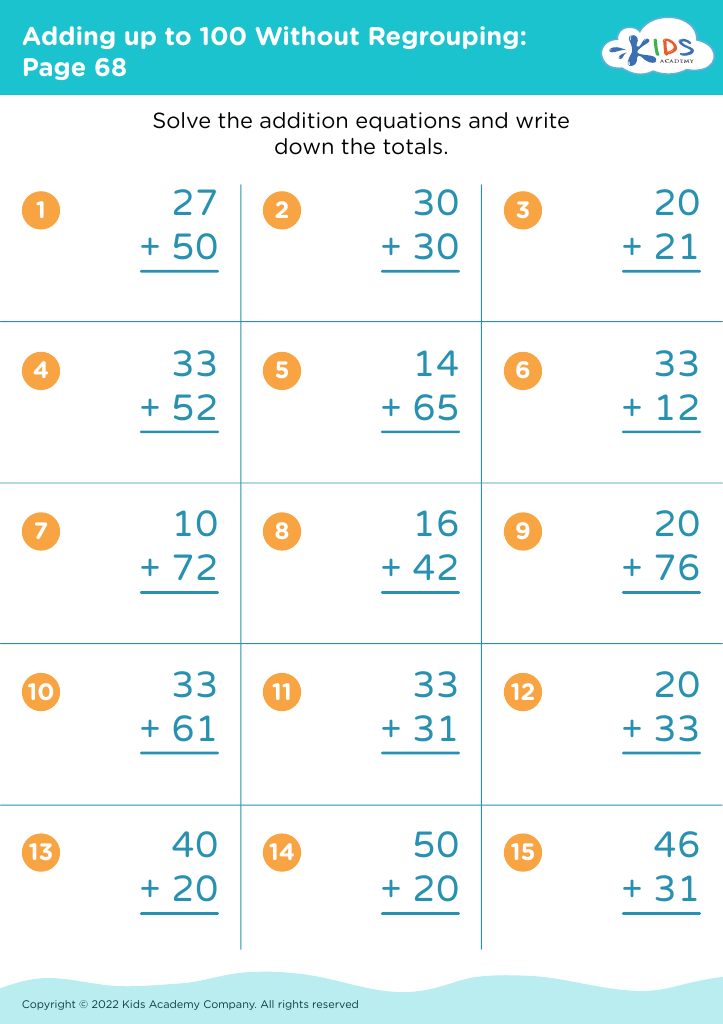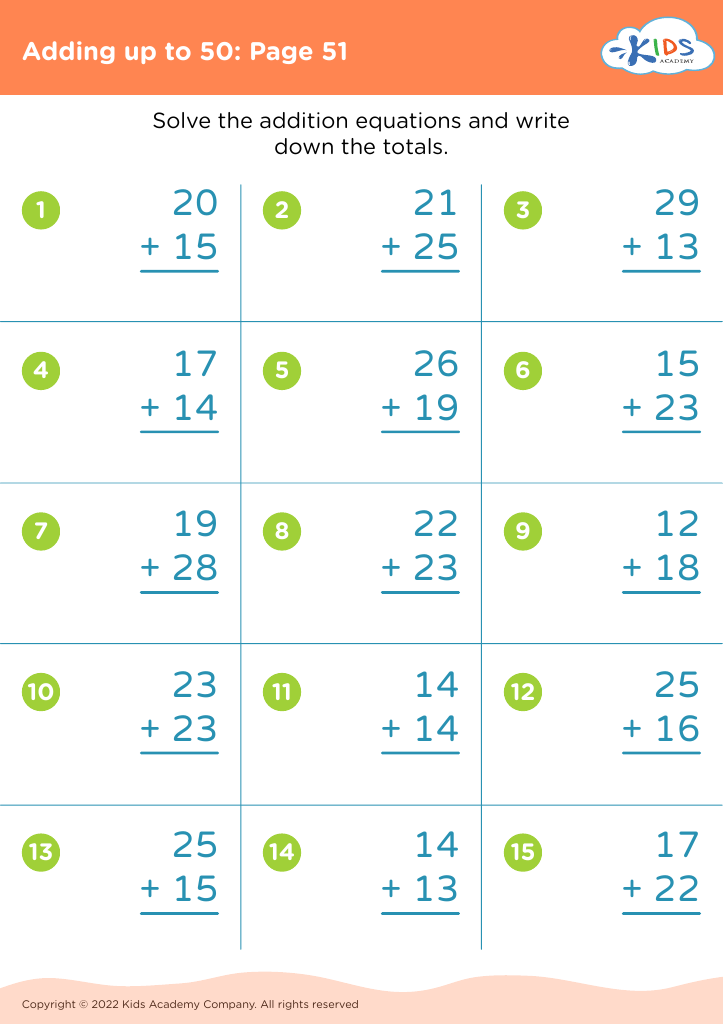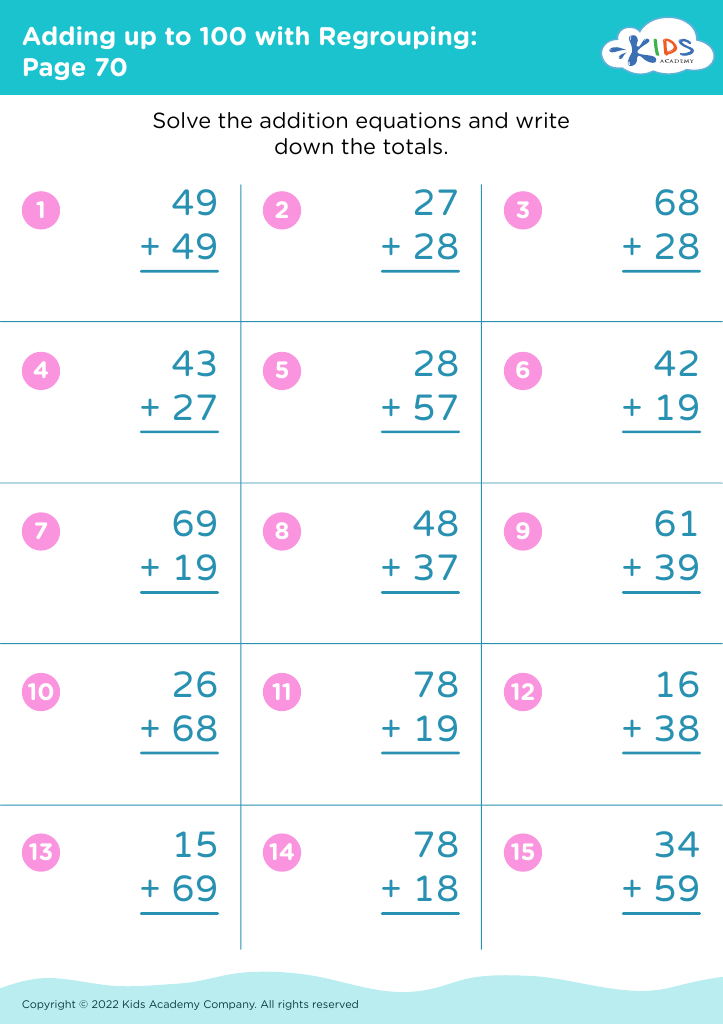Developing problem-solving skills Math Worksheets for Ages 6-8
9 filtered results
-
From - To
Unlock the potential of young learners with our "Developing Problem-Solving Skills Math Worksheets" designed specifically for ages 6-8. These engaging worksheets provide a fun and interactive way for children to enhance their critical thinking and analytical skills. Each activity focuses on real-world scenarios that encourage kids to apply math concepts in practical settings. From word problems to puzzles, our resources cater to varying skill levels and foster a love for math. Whether used in the classroom or at home, these worksheets offer the perfect blend of challenge and enjoyment, helping children build confidence and become effective problem solvers. Start boosting your child’s math skills today!
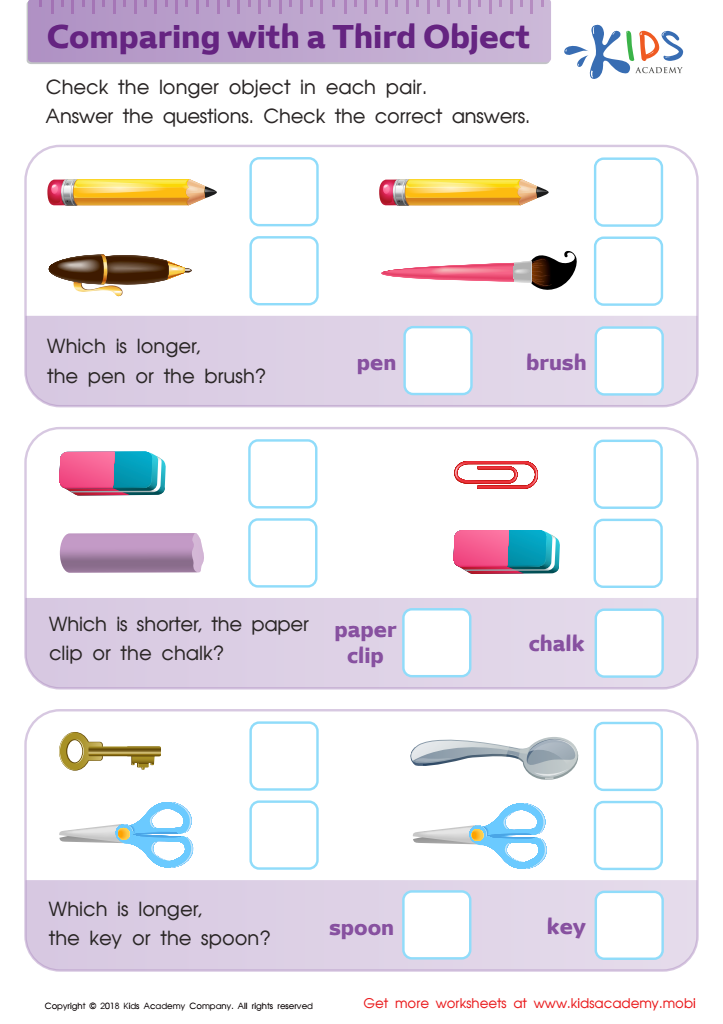

Comparing with a Third Object Worksheet
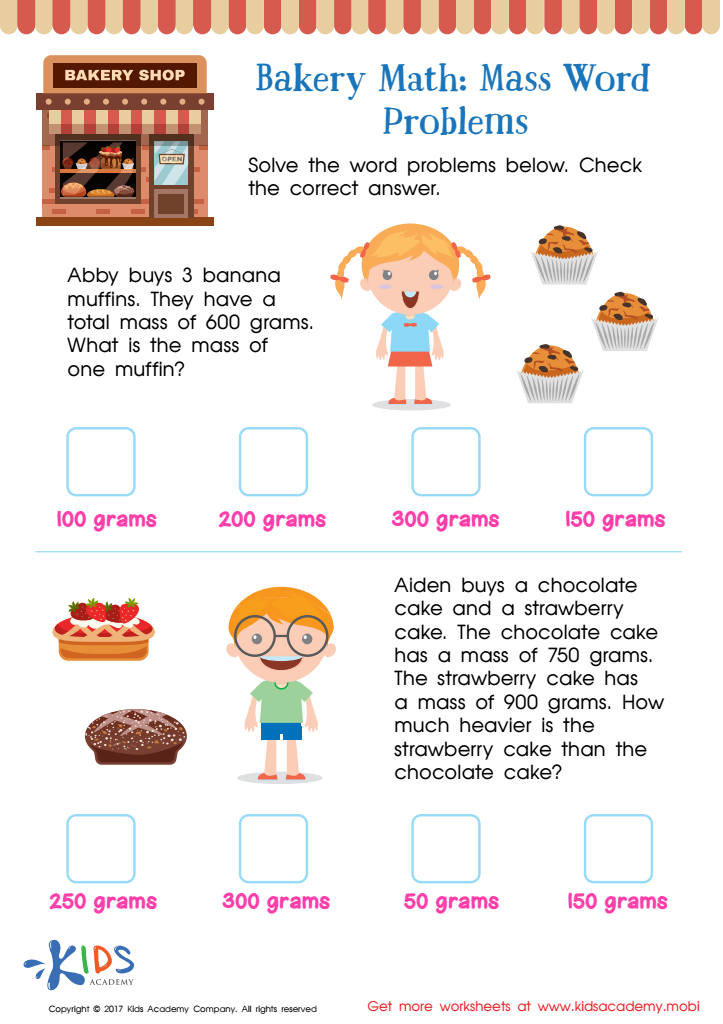

Mass Word Problems Worksheet
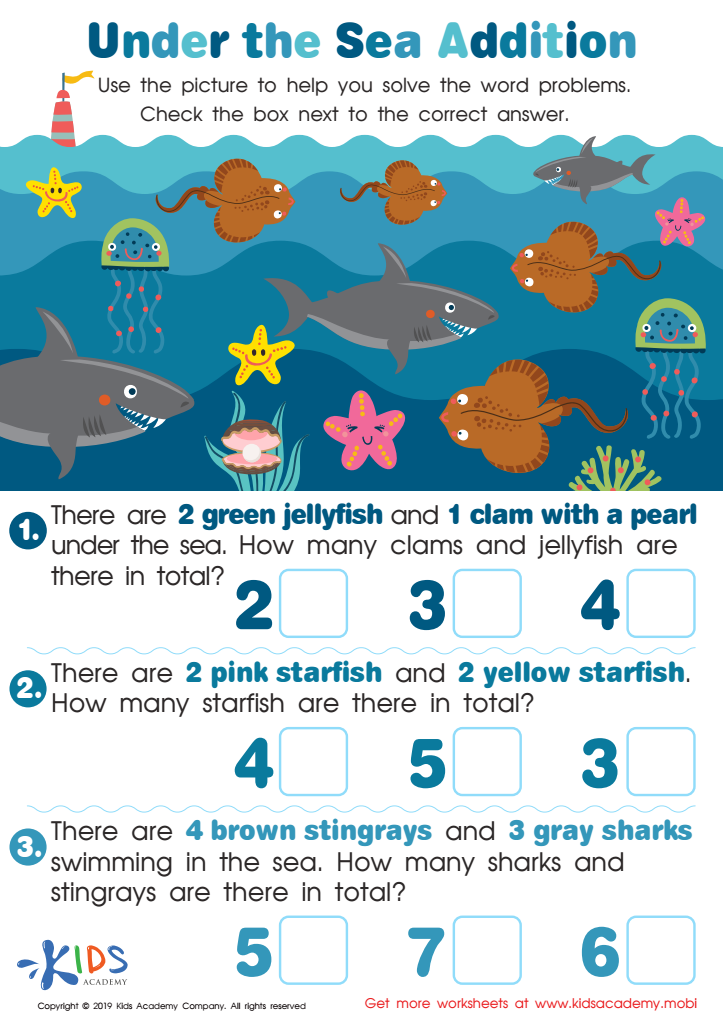

Under the Sea Addition Worksheet
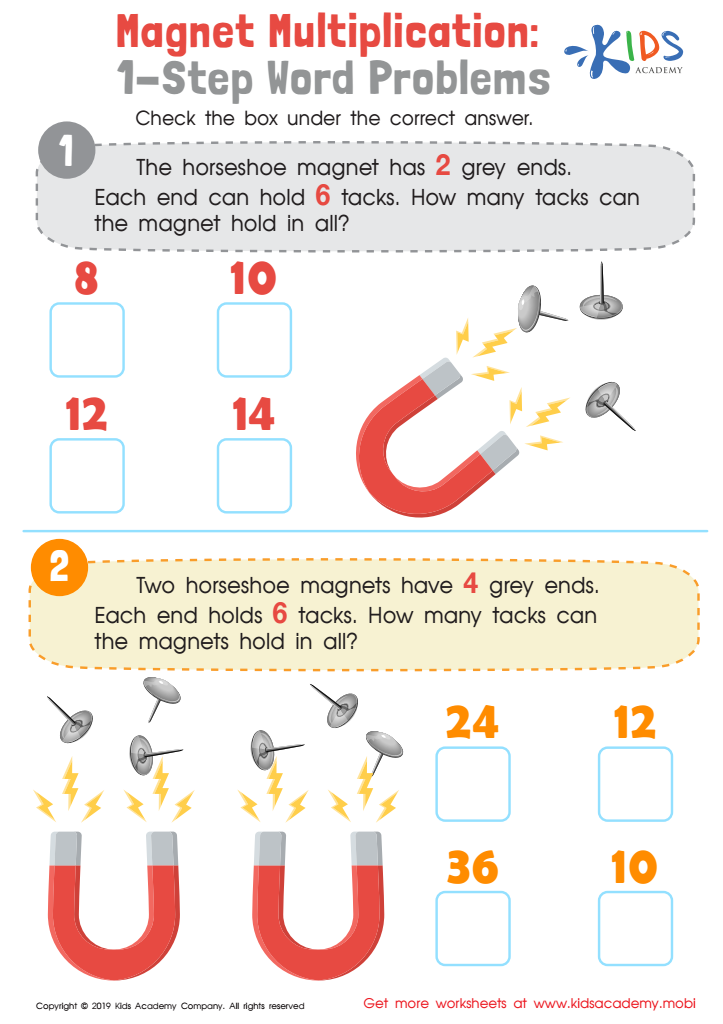

Magnet Multiplication: 1-Step Word Problems Worksheet
Developing problem-solving skills in mathematics for children aged 6-8 is crucial for several reasons. At this stage, children are developing critical thinking abilities, and effective problem-solving enhances their cognitive skills. Engaging in mathematical challenges gives them the opportunity to explore different strategies and approaches, leading to a deeper understanding of mathematical concepts.
Moreover, problem-solving fosters resilience. When children encounter difficulties and learn to navigate them, they build perseverance and confidence. These traits are invaluable not only in math but across all areas of learning and life.
Moreover, mathematical problem-solving connects classroom learning to real-world situations. By tackling problems that reflect everyday experiences, children learn to appreciate the relevance of math and develop practical skills applicable beyond school.
In addition, a strong foundation in problem-solving nurtures collaboration and communication skills. Many mathematical tasks require teamwork, and discussions among peers help sharpen understanding and expose different viewpoints.
Ultimately, instilling problem-solving skills at this young age prepares children for future academic challenges, cultivates a love for learning, and equips them with life skills necessary for their overall development. Therefore, parents and teachers should prioritize problem-solving in math to ensure a well-rounded educational experience.
 Assign to My Students
Assign to My Students
